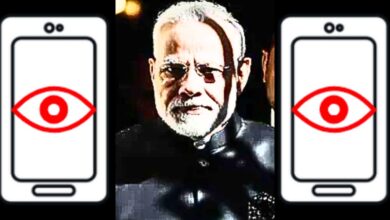Mastercard pledges $500 million to promote financial inclusion in Black communities
Mastercard is committing $500 million toward a series of initiatives meant to increase financial inclusion among Black communities and close the racial wealth and opportunity gap in the U.S., the digital payments giant announced today.
Mastercard’s investment, to be made over a five-year period, will be spread across an array of programs designed to help financially underserved Black communities more easily access financial products, services, and support.
Among its efforts, the company will work with seven cities across the country (Atlanta, Birmingham, Dayton, Los Angeles, New Orleans, New York, and St. Louis) to help them more easily distribute financial aid and resources to Black communities. Mastercard will also look to make digital financial products more affordable and accessible to underbanked Black customers, and will team with community development financial institutions (CDFIs) to increase capital flow to Black business owners.
The commitment sees the company respond to a social climate that—in the wake of the killing of George Floyd and other high-profile incidents of police violence this year—has brought heightened awareness to the systemic inequalities facing communities of color in the United States. That’s prompted many companies to publicly reckon with these issues and pursue measures meant to combat racial inequality.
“When the issues around George Floyd’s murder rose to the top of the agenda, it allowed us to focus on the wealth and opportunity gaps faced by Black communities around the U.S., and how the financial system has disadvantaged them,” Michael Froman, Mastercard’s vice chairman and president of strategic growth, told Fortune.
Coupled with the fact that Black-owned businesses have been disproportionately impacted by the economic recession resulting from the coronavirus pandemic, Froman said Mastercard felt the time was right to organize an effort that, in conjunction with local governments and other stakeholders, would seek to address these inequities.
Broadly, Mastercard’s $500 million pledge involves three major initiatives. First, the company will work with the seven municipalities to help them more efficiently deploy financial support via digital means. In Atlanta, for instance, the company is helping to expand a disbursement program that provides rent relief to struggling residents, and it’s also working with local governments in Los Angeles and New York to deploy similar aid programs in those cities.
Mastercard is also looking to expand access to digital financial products to “unbanked” or “underbanked” people in Black communities, including those who instead rely on costly alternatives like payday lending and check cashing services. The company will work with Black-owned fintech firm MoCaFi on a collection of affordable, digital financial products—such as money transfer and bill payment tools—that seek to “make it less expensive to be poor, and help individuals access their money more easily,” Froman said.
And through its work with CDFIs, Mastercard will work to help Black-owned businesses more easily access the capital they need to grow. The company says it has helped direct $250 million in liquidity to Black-owned small businesses in the U.S. since 2018, and will now look to triple that amount to $750 million. Mastercard will also directly invest in Black- and minority-led startups, and will collaborate with the National Urban League on a new program meant to promote entrepreneurship and job growth in the Black community.
Marla Blow, Mastercard’s senior vice president of social impact, told Fortune that the various initiatives are made possible through the company’s existing relationships with local governments and CDFIs—partnerships that make it possible for Mastercard to “reach into these cities” and seek to make a “catalytic impact” in the communities that need it most.
The company’s commitment, she added, is about “meeting the moment we are in, in terms of racial reckoning, and being a catalyst for change and growth in these communities.”
Mastercard is no stranger to ambitious initiatives meant to increase financial inclusion. Earlier this year, the company said it had reached a goal, set in 2015, of bringing 500 million previously “excluded” people into the financial system. It subsequently doubled down on that target—pledging to bring 1 billion people, and 50 million small businesses, into the “digital economy” by 2025, as well as promising to support 25 million women entrepreneurs.
Source: Fortune




